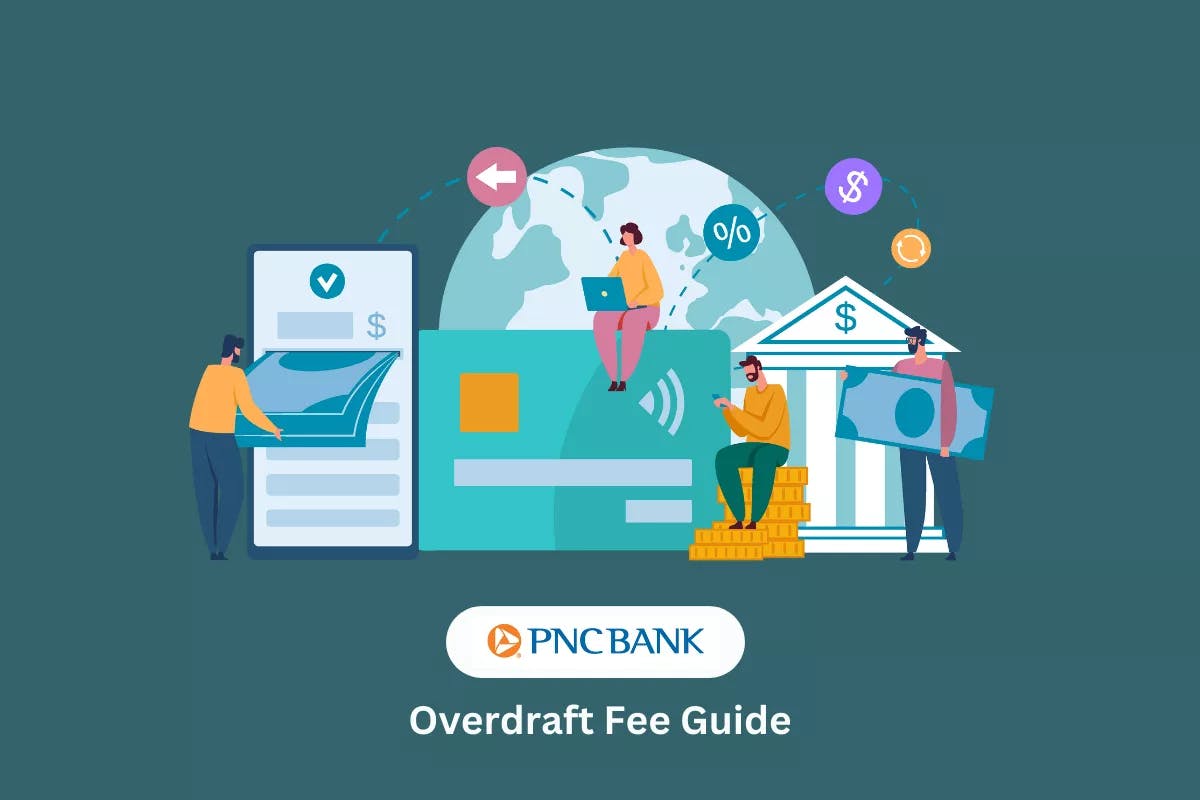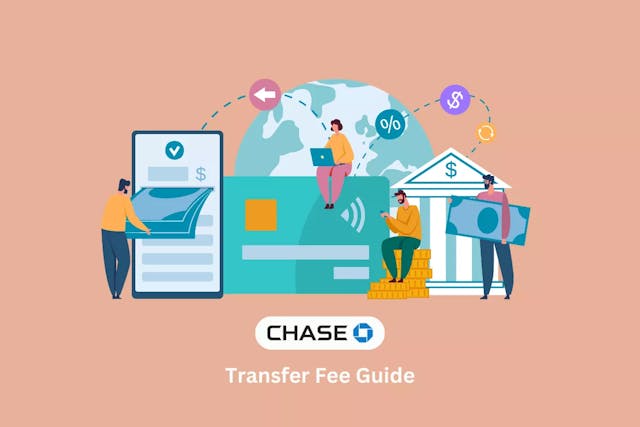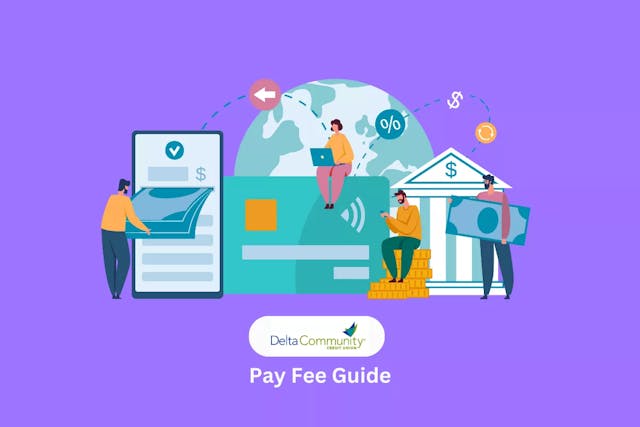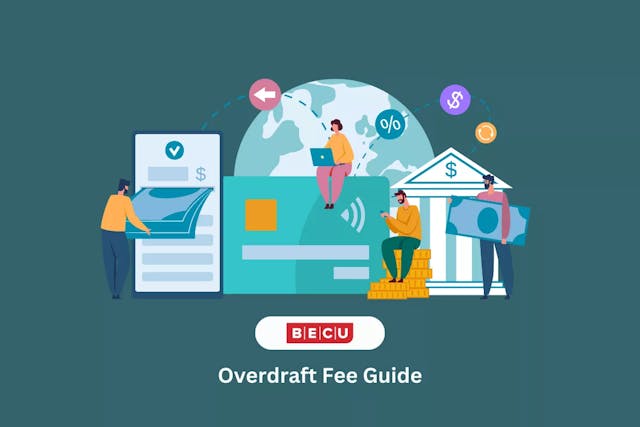What Is an Overdraft Fee?
You are charged overdraft fees (overdraft item fee) by PNC Financial Services Group, Inc., when you do not have enough money in your checking account to cover debit card purchases or withdrawals. Instead of declining the transaction, PNC Bank will allow the purchase or withdrawal to go through and charge you an overdraft fee for covering it.
PNC Bank allows overdraft fees on specific transactions, including:
- Checks and other ACH transactions made using your PNC checking account number
- Automatic bill payments
PNC Bank will not automatically allow you to overdraw your account on ATM transactions and debit card transactions unless you opt into PNC overdraft coverage, and is also not obligated to cover any debit card transactions that overdraft your spend account, regardless of transaction type or overdraft protection status. The decision is ultimately at the bank’s discretion.
How Much Do Overdraft Fees Cost at PNC?
PNC charges a $36 fee per item that overdraws your checking account by more than $5.
For example, if you make a purchase and your PNC checking account only falls to -$4.50, you shouldn’t have to pay overdrafts.
Related Fees
If you overdraft your spend account, a number of scenarios could occur.
- Overdraft fee
- Returned item fee
- Overdraft protection transfer fee
Overdraft fee
Overdraft fees most often occur when you are not opted into overdraft protection and the bank allows you to overdraft your checking account on automatic bill payments, checks, and other payments made using your checking account number.
Returned item fee
A returned item fee — also called a non-sufficient funds (NSF) fee — occurs when you make a purchase but there are not enough funds in your account to cover the transaction. Instead of covering for you, the bank will decline the transaction, or return the item unpaid. PNC charges $36 for each transaction that causes you to overdraft your account by more than $5. You can receive a returned item fee on the same types of debit card transactions that would cause you to incur an overdraft fee.
Overdraft protection transfer fee
Overdraft protection transfer fees most often occur when you are opted into overdraft coverage and the bank allows you to overdraw your account by transferring funds from a qualifying linked account. Rather than a $36 overdraft fee, PNC Bank will charge a $10 overdraft protection transfer fee if you are opted into the program.
To enable overdraft coverage, you must link a qualified account so that the bank can transfer funds from your linked account to your primary checking account in the event of an overdraft. A qualified linked account could include:
- PNC savings account
- Secondary PNC checking account
- Money market account
- Personal or home equity line of credit
- PNC credit card
Special Considerations
PNC Bank limits the number of overdraft fees — including both overdraft fees and returned item fees — to four on a single day.
You can sign up for Low Cash Mode via PNC’s Virtual Wallet. Low Cash Mode provides real-time alerts when your balance is low. This feature also gives you a 24-hour window to bring your balance back positive before receiving an overdraft fee.
By signing up for PNC overdraft protection, you can have peace of mind knowing that your debit card transactions can be covered by a linked credit card or other line of credit even if you don’t have sufficient funds in your account. However, one study found that account holders who opt into overdraft coverage actually end up paying more in overdraft fees and other bank fees than account holders who are not opted in. Make sure that you do your research and consider your unique financial situation before deciding whether or not to opt into the service.
Learn more about what you should know before opting into overdraft protection.
How to Avoid Overdraft Fees
Overdraft fees and NSF fees are some of the most common penalties detected on Cushion customers’ checking accounts — Americans are charged several million in overdraft fees every year. However, there are small actions that you can take to minimize overdraft fees at banks and credit unions.
Keep an eye on your account balance and charges
This might seem obvious, but it’s an easy one to forget. Banks are not legally required to notify you if you’ve overdrawn your account. They could apply an overdraft fee and deduct money from your account, leaving you with a negative balance, without you ever having known. They can also charge multiple overdraft fees in a single day. If all of your bills come out at once, you could find yourself hundreds of dollars in the red.
It’s important that you monitor your checking and savings account balances closely and regularly using online banking. This will ensure that you’re up to date on when direct deposit has hit your account and when money has been withdrawn.
Sign up for low-balance notifications
Rather than manually checking your balance and charges, you can sign up for notifications that alert you when you’re nearing a low balance. Most online banking and mobile banking apps offer this feature and allow you to set the threshold yourself.
This doesn’t give you a pass to neglect your bank account. You should still be monitoring your account regularly. This allows you to identify mistakes, like if someone has stolen your debit card number or if you’ve been charged more than once for a bill.
Low-balance notifications won’t let you in on insights like these, and monitoring your account for mistakes can be one of the most lucrative ways to put money back in your account.
Transfer money ASAP
It’s important to get money into your checking account as soon as possible so that you don’t overdraw your account. If you’ve already overdrawn your account once, you should still transfer money quickly so as to avoid more overdraft fees.
Do an immediate transfer from another PNC checking account or savings account at the same bank, or deposit cash into the account in-person at a branch or via ATM.
Some ATM deposits may not be available immediately, so it’s important to know your financial institution’s policy. Bank-to-bank transfers and other mobile payment services can also take several business days to complete, but can be an alternative solution if you do not need the funds immediately.
Decide whether overdraft protection is right for you
An overdraft protection transfer can give you peace of mind knowing that you can withdraw money or make a purchase even if the funds aren’t currently in your account.
Typically when you opt into overdraft coverage, you will still get hit with overdraft fees if you do not have enough money in your account; however, the overdraft charge will cost much less. To opt into overdraft coverage, you can link your account to a PNC credit card, line of credit, savings account, or another checking account. While these methods might still stick you with a fee, the fee is typically about half of what a standard overdraft charge would be.
Opting in may seem to be the default for many account holders, but not opting in could save you a ton of money. If you try to make a purchase but it’ll send you into overdraft, the purchase will be declined. Consider not opting in if: you don’t have a lot of essential bills to pay, you’re trying to manage your spending, or you’re an avid user of online banking, mobile banking, and text message alerts. Remember that you can opt into and out of the program at any time.
Learn more about how to avoid an overdraft fee.
How to Get Overdraft Fees Refunded
If you have to pay overdrafts regularly, you should be prepared to negotiate them. Keep a few things in mind when reaching out to a PNC bank agent.
Gather your information
Name, address, bank account number, and the fees that you’d like to negotiate.
Introduce yourself
“Hello. My name is , and I recently received an overdraft fee. I’m contacting you to see if you would be willing to refund this fee.”
Prepare your points of leverage
Are you experiencing financial hardship as a result of COVID-19? Are you a loyal customer who has been with PNC Bank for an extended period of time? Is this overdraft a rare occurrence? Do you have multiple PNC accounts? Do you make regular deposits?
Be patient, persistent, and prepared not to get a refund every time
Remember that the representative likely didn’t write the rules on refunds, so kindness and patience can go a long way in these situations.
You should also remember that it’s okay to press the issue if you initially hear “no.” You’re the only person who can fight for your money, which is why you’ve worked hard to prepare your points of leverage. Sometimes, success depends on the representative that you speak with, so consider asking to speak with higher level management or try calling back a few days later to speak with someone new.
Finally, you have to be willing to lose some negotiations. Don’t get discouraged. Focus on avoiding future fees.
Learn more about how to get an overdraft fee refund.
Find the full PNC Financial Services Group, Inc., fee schedule here.



